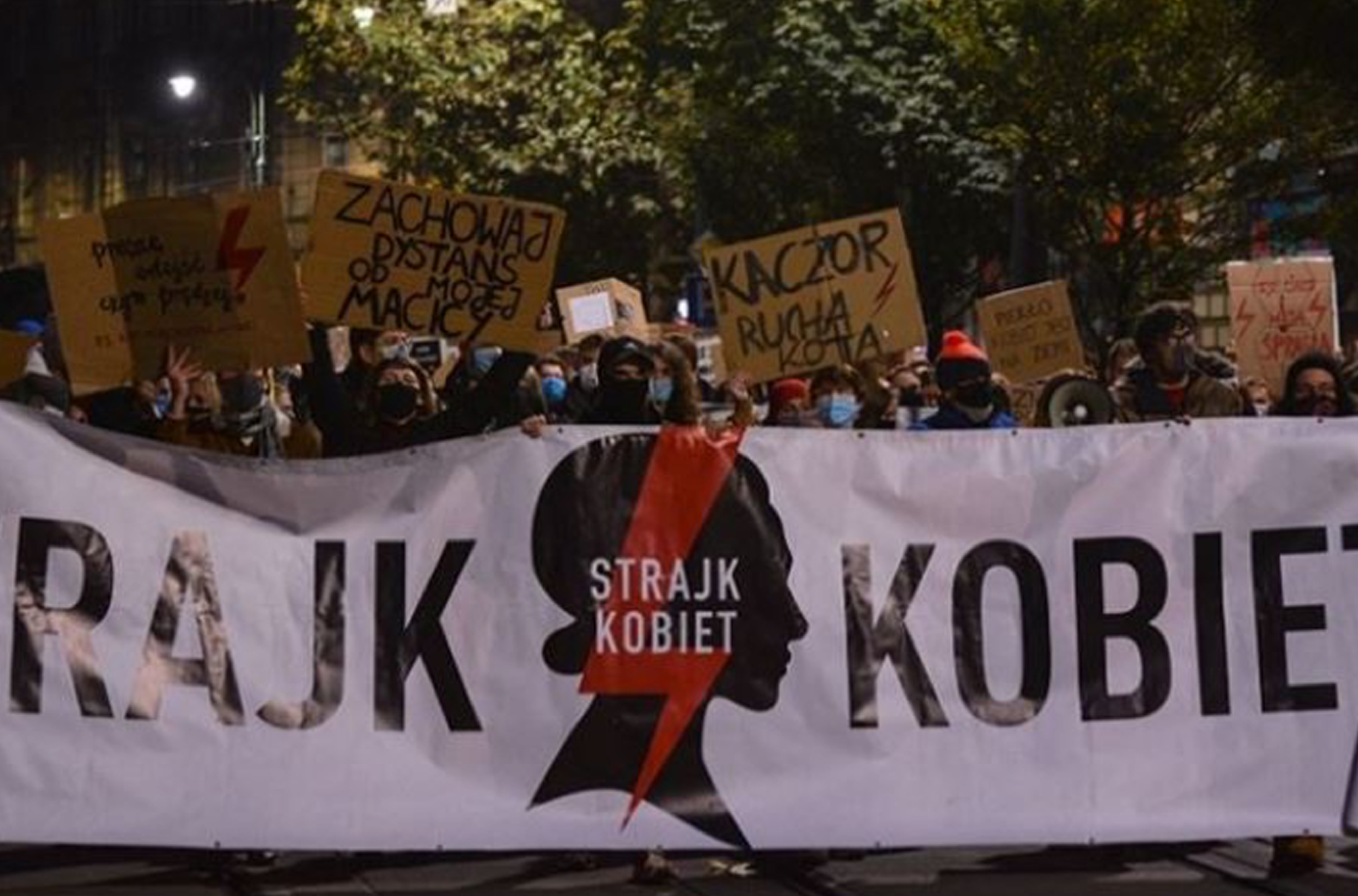
Letter to Poland’s Prime Minister, 30 October 2020
In a letter to Prime Minister Mateusz Morawiecki, the leaders of five European Parliamentary groupings – the European People’s Party (EPP), the Socialists and Democrats, the Greens, Renew Europe (Renew) and the United European Left – protested against Poland’s recent ban on abortion for fetal anomaly.
They described it as an “unprecedented attack on the rights and freedoms of women” at a time when it is “very difficult for citizens to express and demonstrate their opinions” because of the pandemic.
They said the ruling “fails to acknowledge the need to protect the inherent and inalienable dignity of women. As such, it can be in breach of the Polish Constitution, specifically Articles 30, 40, 47, 68”. Further, they said the ruling “can also constitute a violation of the provisions of the UN Convention against Torture and Other Cruel, Inhuman or Degrading Treatment or Punishment of 10 December 1984, the UN International Covenant on Civil and Political Rights of 19 December 1966, and the Council of Europe Convention for the Protection of Human Rights and Fundamental Freedoms of 4 November 1950, as underlined by the Legal Experts Group of the Stefan Batory Foundation.
Further, they reminded the Prime Minister that the European Parliament and the European Commission had “already raised serious concerns about judiciary reforms, which have been implemented by the Polish government since 2015”. These have included “serious violations of the rule of law in Poland, questioned the independence and legitimacy of the politicised Constitutional Tribunal, and as a consequence, the validity of its rulings”.
Lastly, they expressed solidarity with the thousands of Polish women and men who – in spite of the pandemic – took the streets of cities and towns across Poland to protest against barbaric restrictions undermining their fundamental human rights.
SOURCES: Letter to Prime Minister Mateusz Morawiecki, 30 October 2020 ; Statement by the Legal Experts Group of the Stefan Batory Foundation on the Constitutional Tribunal Ruling on Abortion, 28 October 2020 ; The Parliament Magazine, by Lorna Hutchinson + PHOTO, 2 November 2020
+++
Questioning the legality of the Constitutional Tribunal’s anti-abortion ruling
An important issue raised in the letter from the Batory Foundation is that “the courts ought to consider the legal impacts of non-judges having been involved in the Constitutional Tribunal ruling”.
One of the main doubts regarding the legality of the ruling is the fact that Krystyna Pawłowicz was not only part of the adjudicating panel, but was also assigned as the judge-rapporteur. Pawłowicz is a highly controversial figure in Poland – an ex-Law and Justice Party MP (2011-2019), she is known to be one of the most devoted supporters of Jarosław Kaczyński, leader of the Law and Justice Party in the parliament and among the most powerful figures. While still a parliamentarian, Pawłowicz supported an anti-abortion motion to the Constitutional Tribunal. As a judge-rapporteur for the ruling about fetal anomaly, she was responsible for preparing the ruling – with the two cases being almost identical. Her previous involvement in the anti-abortion motion should have provided grounds for her exclusion from the adjudicating panel, not to mention prohibit her from being the judge-rapporteur. Many Polish constitutional lawyers see her ruling on a case that she had already supported as a politician as sufficient grounds for annulment of the tribunal ruling.
SOURCE: This signature makes the CC ruling on the prohibition of abortion invalid, by Pawel Rutkiewicz, Wyborcz.pl, 30 October 2020.
Last Friday, it looked as if the government was considering stepping back from its own ruling in response to the many days of protest. However, they have also become worried about the rapid increase in Covid-19 infections, which they fear/claim may partly be due to the demonstrations. In any case, on 1 November, the national prosecutor, Bogdan Święczkowski, sent a letter to the heads of the regional prosecutors’ offices all over the country, ordering them to prosecute the organisers of public protests. He called for anyone organising an “illegal gathering” (that is, more than five people) to be penalised under Article 165 of the Criminal Code – the crime of endangering the life or health of the people by causing an epidemiological threat. The sentence for this is six months to eight years in prison. The government decided they should first target small towns and local leaders. A convenient threat to be able to use.
SOURCE: rmf24.pl, 29 October 2020



